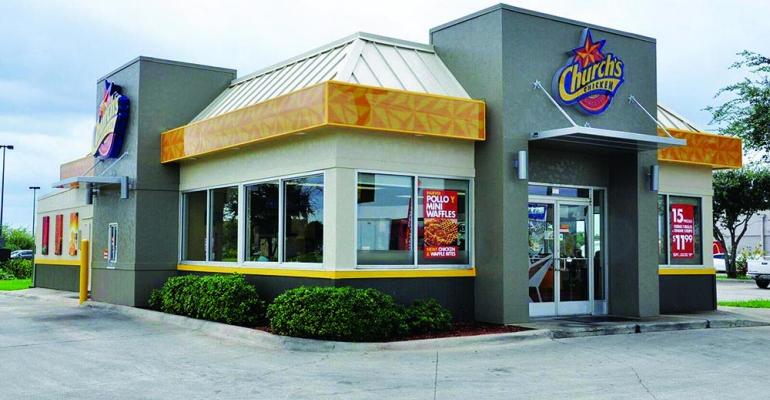My team spends most of their days designing and deploying next-gen leadership-development tools for multiunit franchisees and above restaurant leaders. Naturally, we pay a lot of attention to the unique challenges facing multiunit leaders and the innovative ways they overcome them, especially in a global pandemic.
Since COVID-19 hit, the foodservice industry’s area directors, district managers and market leaders have proven to once again be the key connective tissue between the company and the customer. No franchisor or franchisee could be successful without the navigational (and improvisational) skills of their multiunit leaders (MULs).
In my last two columns I shared creative post-pandemic lessons in leadership from a variety of MULs across industry segments. This month, I’d like to share four more.
Felicia White, vice president of operations training and development for Atlanta-based Church’s Chicken shared these three lessons in leadership: “First, I’d say to be flexible and open-minded. There may have been standards in place previously which now need to change, or possibly an ‘old way’ of doing something that could be replaced with a new and better way. Be forgiving of your team and yourself when there’s a change in direction that causes a deadline to be missed. Remember that when we began January 2020, no one had factored in a global pandemic to the business plan!
“Second, prioritize your health and wellness and make sure your team does the same. Remember Maslow’s hierarchy of needs. During times of crisis and chaos, our innate reaction is to ensure that our basic needs are met first. These include our physiological and safety needs. If those basic needs are not addressed first, we can’t expect people to thrive in other areas of life and business. I constantly check in on the mental and physical health of myself and my team.
“Third, take time to disconnect. It’s easy nowadays to be online constantly, because that’s how we communicate and conduct the majority of business today. It’s important to have the discipline to put away the devices when there’s a need for personal time and when you need to focus on a project. This allows you the rare opportunity to simply think, and Innovation often happens during those quiet moments when you are alone with your thoughts. These moments are where we find the answers to the complex people and business challenges we face every day.”
Asra Khan, a multiunit leader for the Schererville, Ind.-based Taru Patel and Dave Patel Network, who franchise Dunkin’ and Baskin-Robbins restaurants, shared this insight: “Whenever I hear doctors and nurses being called frontline soldiers and heroes, I am reminded that the same is true of all the hard-working teams in our restaurants. Our people have produced outstanding results despite all the uncertainty and heightened food safety, sanitation, and social-distancing concerns since the onset of COVID-19.
“In my network of 18 stores our sales and transaction numbers are up considerably since the pandemic began. These results are a testament to both the team’s resilience and the brand’s commitment to — and support for — the safety of our team members and guests. Our people worked with smiling faces, a great positive attitude, and a tireless dedication to excellence. This helped us win guest’s trust and loyalty, which allowed us to grow.
“Inspiring people to do something they thought they couldn’t do in uncertain times, demonstrating how the impossible is, in fact, possible, and believing in teams when they didn’t always believe in themselves, defines a post-pandemic leader. The three things I’ve learned are that leadership shapes consistency, consistency builds trust, and trust creates loyalty.”
Robyn Lippert, a franchise business consultant with Wisconsin-based Culver’s Franchising System, LLC, shared these three lessons in leadership: “I’d like to qualify this by saying these are not new leadership strategies. With or without COVID-19, these are important tactics in any leadership toolbox, but in light of the coronavirus pandemic, they’ve become essential.
“First: Lead with empathy and understanding. The pandemic hit people on so many levels; professionally, physically, financially, mentally, etc. It has been even more important to genuinely listen to what a business owner, manager, employee, or customer is feeling and dealing with. With that understanding, you can better assess what is needed to serve and support them.
“Second: Be flexible and agile. In many cases, restaurants have had to completely rethink and reprioritize their operations, including adjusting to more business in the to-go space, maximizing drive-thru efficiency, staffing/scheduling, and supply-chain challenges. Being able to adapt and adjust was, and is, essential for survival in what is certainly the most challenging environment the industry has ever seen.
“Third: Safety in everything. You can’t build customer and crew trust, confidence and loyalty without a clear commitment to keeping them safe. We can never let our guard down.”
Bill Spae, president and CEO of Lonestar DQ, operator of over 75 Dairy Queens in Texas and New Mexico, shared these three lessons learned: “First, thank goodness for drive-thrus! As a result of having them in all of our units we have been able to sustain flat to positive YOY sales even with dining rooms closed. We also put more focus on drive thru performance like speed, accuracy, quality, friendliness, safety, and technology. Restaurant design will be dramatically affected going forward.
“Second: Don’t panic. Lead by example in a calm, positive, helpful manner.
“Third: Survive to thrive! All things run their course. Keep your composure and be sure your team knows your steady hand is on the tiller and the business will survive with everyone’s help and commitment.”
Jim Sullivan is a speaker and the author of two bestselling books: Fundamentals and Multiunit Leadership. Companies using his products or services include Walt Disney, Panera, Chipotle, Domino’s, McDonald’s, Starbucks, Texas Roadhouse and Marriott. Join Jim’s 400,000 social media followers at LinkedIn, Twitter and YouTube. Get more free leadership resources at Sullivsion.com.





